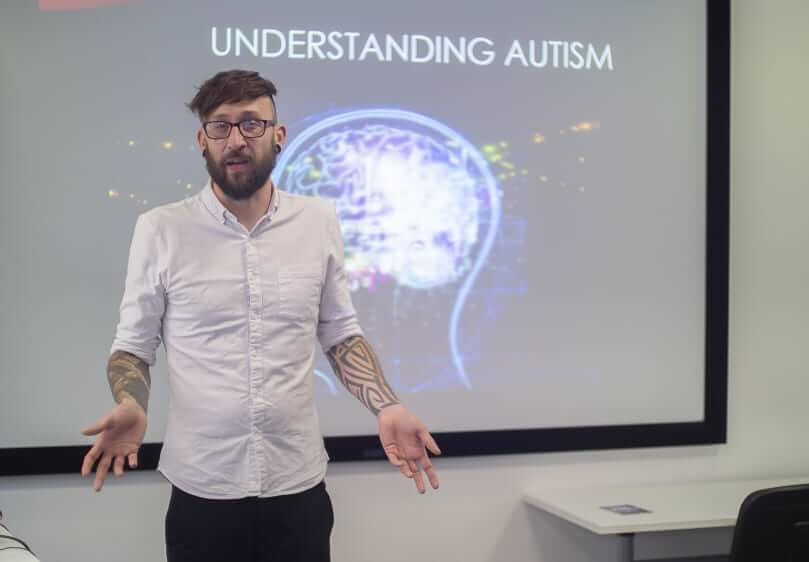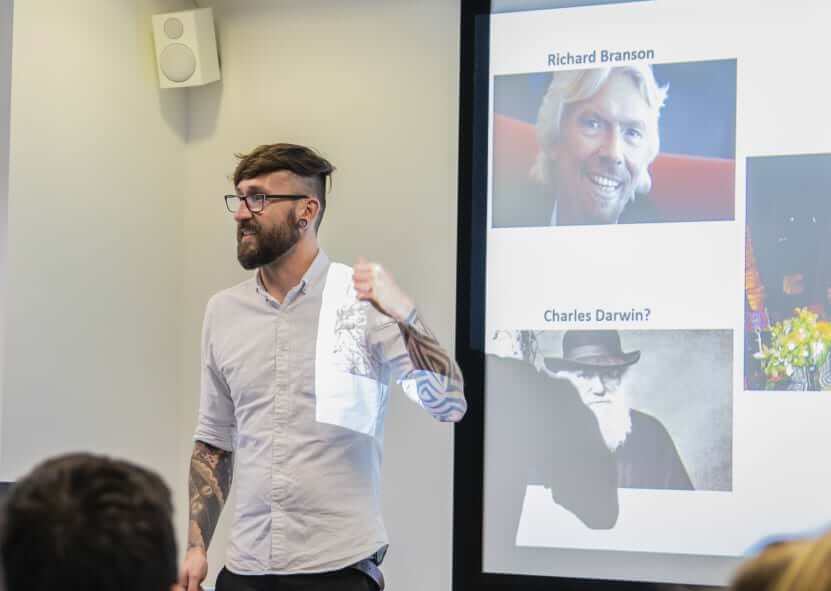Kate Burnett, MD of DMA Talent, discusses the growing need for neurodiversity awareness in the professional world with the chief marketing officer of Direct Line Group, Mark Evans
An underutilized talent pool – neurodiversity awareness
There is an increasing demand within the data and marketing industry for analytical, data-minded individuals, which will inevitably lead to the talent pool becoming stretched. The Institute of Direct and Digital Marketing’s (IDM) 'Professional Skills Census 2018' report highlights 'data-related skills' as a key area with skills gaps that need to be addressed. There are a number of areas within 'data-related skills' that marketers identified as growing in importance in the future, including 'Analyzing customer data/insight', 'Data analysis & reporting', and 'Data & database management'.
There is a huge opportunity for data and marketing teams across the UK. As summarized by Robin Huggins, Head of MBN Academy/Data Lab MSc. Placement Programme at MBN Solutions.
"Embracing Diversity within talent pools is critical for organizations looking to 'future proof' themselves against shortages in essential skills. Neurodiverse individuals can contribute greatly to organizational goals."
Robin is Talent Chair for DMA Scotland and has been working with the DMA Group to raise diversity awareness within the data and marketing industry.
Autism is one of many conditions associated with neurodiversity
Neurodiversity is essentially a collective term used to describe people who think differently to the majority and is often stated in relation to neurodevelopmental conditions such as ADHD, dyslexia, dyspraxia and autism – to name a few. According to the National Autistic Society, there are around 700,000 people on the autism spectrum in the UK, of those, just 16% of autistic adults are in full-time, paid employment.
Senior decision makers, line management and HR teams are unlikely to be experts on neurodiversity, as there is limited research, best practice and training for this. That is why DMA Talent is working with subject matter experts to help define best practice and has been advised on a number of straightforward adjustments to recruitment procedures and working environments that can be made to ensure businesses are able to attract and support the best talent.

The business perspective - insights from Direct Line Group’s chief marketing officer
To get an idea about what this could mean for businesses within our industry, I spoke with Mark Evans. Mark has been a hugely influential neurodiversity awareness advocate over the past few years within the data and marketing industry.
He is extremely passionate about diversity in general and is working with the Direct Line Group to reform some of their working practices. Some of his team recently attended DMA Talent’s training to support their existing 'Diversity Network Alliance', which promotes diversity and equal opportunities within the company.
When did you first come across neurodiversity? Has it always been on your radar?
"In the past, I was rather guilty of lacking knowledge in this area. I think you could be forgiven for not knowing much about neurodiversity or its associated conditions, as there is currently limited research and best practice in the professional world.
"I have always been a believer in diversity in general, as the collective usually brings about a greater performance, especially when they are headed in the same direction with the right guidance. I tend to refer back to when I played rugby at school, as you would have players of all shapes and sizes in the team and it is essential to have a wide range of attributes to be the best. Some are faster, others stronger, and a few more tactically minded - tall or short - thick or thin - everyone adds value to the team."
What made you develop such interest in neurodiversity awareness?
"My daughter was diagnosed with dyslexia a number of years ago. This did and continues to have a significant, but nonetheless, eye-opening, impact on my family life. Her condition used to make her quite self-critical and she would often question her self-worth. It is through her that I started to realize the fascinating potential someone can have that may go unnoticed.
"Although her spelling and grammar have limitations, she is undoubtedly talented with her linguistic skills – she just flourishes vocally. Technology, especially voice activated typing, alongside her grit and determination, has really helped her develop and progress."
Could the data and marketing industry be doing more to attract neurodiverse individuals?
"There is a common misconception that associated conditions of neurodiversity can often be synonymous with mental health or even social isolation. This may be true for some but this isn’t representative of the majority. In any case, it is all about tailoring working environments for individuals - not just what is convenient for the majority. It still continues to surprise me today how much a person can thrive in the right conditions, given the right support.
"Direct Line Group, from a recruitment perspective, is keen to create a level playing field for anyone who wants to work here. It is something we are reviewing, and have been for some time, to ensure we are always progressing. For example, we understand that group tasks may not be ideal or comfortable for someone with autism, or even on-the-spot questions. So, if their job role doesn’t require this why are we putting this in the recruitment process? Recruitment should very much be individualistic, where possible, we should be creating an environment for someone to thrive - not to catch them out or test them in ways that just aren’t relevant to their role."

In your opinion, what could be done better at Direct Line Group to become more neurodiverse friendly?
“Aside from the recruitment process, there is more that we can be doing to improve our working conditions to become more neurodiverse friendly. I’m sure many other organizations would say the same about theirs!
"Ideally, I’d like to be able to survey my marketing function anonymously about what we could be doing better in this sense (currently sitting at around 120 employees under my remit), which in turn would let our employees know that we are there for them if they need us and that we are willing to listen to how we can make their working life better. It would also be interesting to find out about how many employees have a condition associated with neurodiversity. If our numbers are alarmingly low, then we clearly need to find out from the source, our employees, what needs to change.
"In terms of using technology to assist our employees, I would like to see better use of adaptive technologies and for DLG to become systematic in our adoption of using them. For example, voice recognition typing has been a revelation in my daughter’s life in terms of her ability to communicate and develop her linguistic skills.”
How can campaigns like this help organizations? Has it helped Direct Line Group so far?
“In a digital age, big data is the future of marketing, and even the insurance industry more specifically! In terms of data and marketing teams across the UK, we are missing out on a large talent pool that is highly analytical and loyal, who can also thrive with problem-solving tasks and have fantastic attention to detail – just to name a few of the skills on offer.
There is limited best practice out there, but the training and advice that DMA Talent provided my teams at Direct Line Group with have been invaluable. Matt Trerise, the initiative’s lead trainer, has unrivalled experience in this area in terms of diagnostics and understanding what needs to change and why. He provided our team with a real view of neurodiversity - where quite often it feels like there is a disconnect between the theory and the people involved."

A skilled talent pool that needs some simple reforms to thrive
There is growing recognition among the professional community of the skills neurodiverse individuals can offer, especially in relation to solving problems and creative input. For example, many autistic people are very logical thinkers and have strong attention to detail, and many people with ADHD and dyslexia can be hugely creative and bring a different perspective when generating ideas or new designs. All of which can be a huge asset in any workplace.
We need to raise awareness of neurodiversity and provide a platform where consultation is available and best practice is continuously developed. DMA Talent’s Neurodiversity Initiative is the start of a movement that will help the industry to bridge a number of skills gaps while gaining access to a vast, highly skilled talent pool at the same time.
Matthew Trerise, who has 15 years of experience working with individuals on the autism spectrum, will be leading the training workshops. Since 2009, he has worked in a specialized NHS diagnostic service to help develop their diagnostic programme and assist businesses with their training. He has advised multiple employers, including the HMRC, on alterations they should make to become more ‘neurodiverse friendly’.
DMA Talent are due to run training sessions in February 2019 - make sure you register your interest.
Thanks to Kate Burnett, the managing director of
DMA Talent, for sharing her thoughts. As MD of the DMA Talent team, Kate’s mission is to create a clear pathway to inspire young people to join the growing direct and digital marketing industry. She is passionate about educating and enabling the next generation of marketing talent with the skills they need to succeed. As part of the DMA Group, the Employability team creates links between education institutions, student and professional bodies, youth charities and employers to develop projects which improve the employment prospects of young people into marketing.










